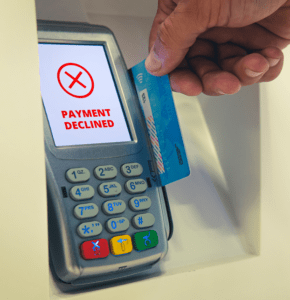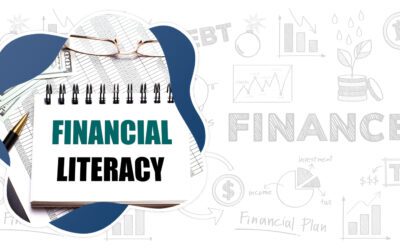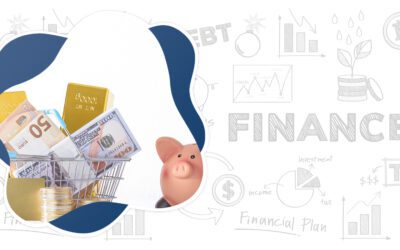Are you financially illiterate? Do you struggle to make ends meet every month? Do you feel like you’re always playing catch-up when it comes to your finances? If so, then you may be financially illiterate. Financial illiteracy is a widespread problem in the United States, and it can have serious consequences for your financial health. If you’re not sure about your level of financial literacy, there are a few warning signs to look out for. In this post, we’ll discuss some of the warning signs that you may be financially illiterate. We’ll also share tips for how you can improve your knowledge in this area!
 You can’t manage your finances effectively
You can’t manage your finances effectively
This means you might not be able to make smart decisions about spending and saving money. For example, you might not know how much interest you’re paying on your debts, or how inflation can impact your savings.
Solution: It might be a good idea to take an introductory course on finance. This will help give you a better understanding of simple financial concepts, and how they impact your day-to-day life. Once you have this basic knowledge under your belt, it will be easier for you to make smarter decisions about your money.
Be sure the course explains how to set up a budget. This will help ensure you’re not spending more money than you have, and help you save for short-term and long-term financial goals. You should also understand the different types of investment vehicles available to you, and how each one works. This knowledge will come in handy when it’s time to start saving for retirement. Explore ways to pay off existing debt. This might include negotiating with your creditors to get a lower interest rate or consolidating your debt into one monthly payment. If you’re not sure where to start, speak with a financial advisor. He or she can help create a debt repayment plan that’s tailored to your unique circumstances.
You find yourself living paycheck to paycheck
This means you are not making enough money to cover your expenses and/or you are not good at managing your money. There are some ways to fix this problem, such as budgeting your money and looking for ways to cut down expenses.
Solution: Analyze your bank and credit card expenses and eliminate necessary overlapping expenses. Are you paying for cable and multiple streaming services? This is the first area of concern since they are mere luxury expenses. Are there alternative options for your living expenses? Try cooking at home instead of eating out frequently. Consider career advancement options to increase your income.
You are routinely denied credit.
This is a sign of not paying your debt obligation timely and companies are having a hard time trusting you. Your credit report is your financial reputation. Likely you have negative reporting on your credit which is hurting you. Solution: Check your credit report for any errors that may be artificially lowering your score. If you have unpaid debts, try to negotiate with the creditor for a lower amount or payment plan. You can also explore a consolidation or debt settlement. You should also try to pay all your bills on time from now on, and also keep balances low on credit cards/other revolving credit lines. Bad credit doesn’t have to be a life sentence!
 Lack of understanding of basic financial concepts
Lack of understanding of basic financial concepts
Taking charge of your finances starts with understanding the basics. You may be financially illiterate if you don’t know what a credit score is or how much money will go into paying off debt, but these things could really hurt in the long run and result from poor decisions that were made because there wasn’t enough information available to make informed choices – which leads us back full circle: knowledge versus ignorance!
Ignorance is not bliss when it comes to your money. Learning the basics of financial literacy is essential for making sound decisions about your finances. Comprehending key concepts is essential for individuals to take charge of their finances. Without this knowledge, people can make costly mistakes. The right education will empower people—especially those feeling anxious over financial matters due to lackadaisical attitudes toward money-to take control over their financial destiny through empowerment and knowledge-based strategies rather than relying on guesswork and bad decisions.
Conclusion
If you’re experiencing any of these warning signs, it’s a sign that you need to improve your knowledge of financial literacy. There’s no one-size-fits-all answer to this question, as the level of financial literacy required to be successful will vary depending on your personal circumstances and goals. However, some basic steps that everyone can take to become more financially literate include learning about financial planning and budgeting, investing, saving money, and understanding credit scores and interest rates. You can accomplish this by taking an introductory course on finance so that you can better understand basic concepts.
In addition, it’s important to stay up to date with news and developments in the world of finance. This can be done by credible media outlets, financial newsletters, or email alerts. Finally, it’s also helpful to talk to a financial advisor who can provide personalized advice based on your individual needs. Saturday


 You can’t manage your finances effectively
You can’t manage your finances effectively
 Lack of understanding of basic financial concepts
Lack of understanding of basic financial concepts


0 Comments